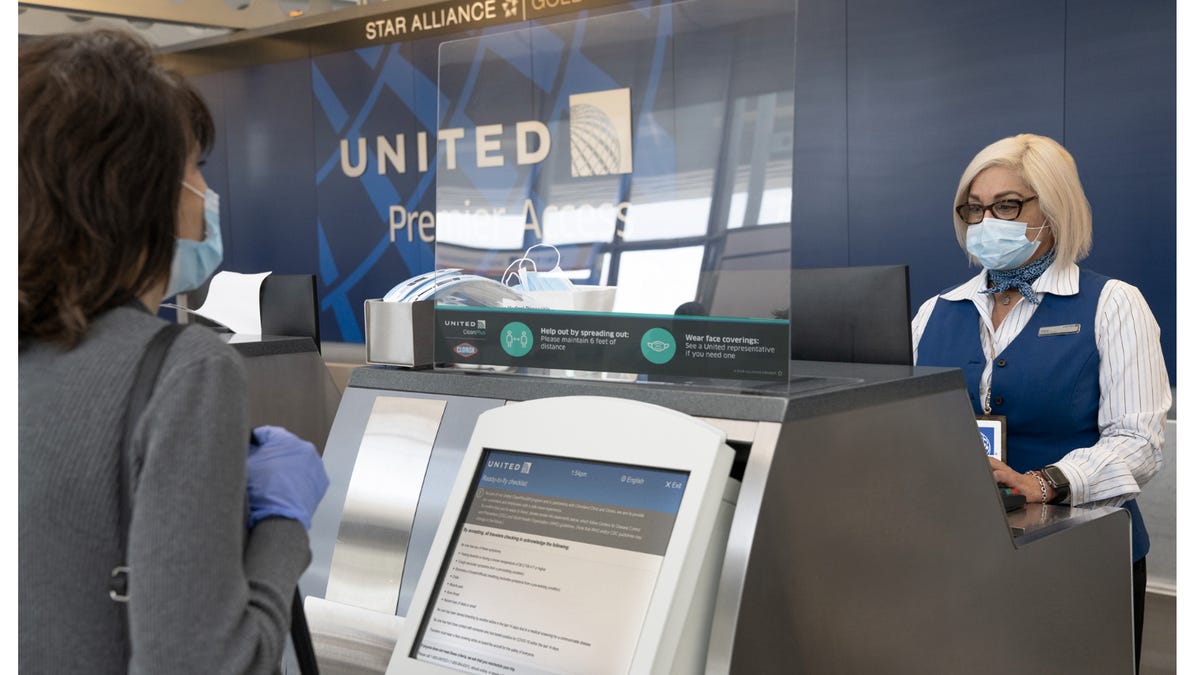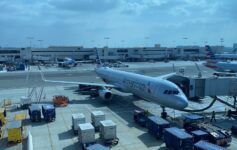
United Airlines CEO Scott Kirby recently sat down with David Ignatius of The Washington Post. Live and Let’s Fly will examine the wide-ranging interview in a series of posts.
United CEO Claims He Always Wanted To Eliminate “Indefensible” Change Fees
Ignatius asks if the “permanent” elimination of change fees will really be permanent. Kirby responds first by saying he has wanted to eliminate change fees for 20 years, change fees were indefensible in certain contexts, and that the change is indeed permanent.
So, one of the big decisions that we made–and I think we did it in June–was to announce that we were permanently eliminating change fees, and this is a decision that I’ve wanted to make for 20 years in my career in aviation. I’ve joked, sort of joked at least, that because it’s a billion-dollar decision, you kind of have to be the CEO to make the decision. But we have permanently eliminated change fees at United, and then most of the others in the industry have followed and copied us.
It’s true that United Airlines was first among legacy carriers to eliminate change fees. But it’s also true that this happened several months into the pandemic when demand for travel was dead and airlines were desperate to stimulate future demand.
I’m not questioning whether this was a “decision” Kirby has wanted to make the last two decades, but he could have done it at America West, US Airways, American Airlines, and earlier at United Airlines, but did not. Kirby might respond that he was not CEO, but it’s only fair to note that the pandemic created the ideal conditions to experiment with the elimination of change fees. Airlines were not going to sacrifice a tremendous cash cow prior to the pandemic or they would have done so…
Kirby pointed out the incongruity in claiming an airline is “customer friendly” yet charges “indefensible” change fees:
But the point on this one is actually a bigger point, which is we’ve really tried to change how customers feel about United Airlines, and this is as much a cultural point as something that customers requested, because our employees, we put them in this position of charging change fees. And somebody has a really good reason they need to change their flight, a relative passed away or ill, and they were forced to tell that customer, “Okay. You can change your flight by a week, but we’re going to charge you $200 to do it,” and our employees knew that wasn’t right. And we forced them to defend the indefensible. And when we did that, it’s hard for them to believe when we tell them, “We want you to do the right thing for customers.” They look at you like, “Well, you don’t mean it because you make me do these things that are bad for customers.”
Good sentiment, but actions speak louder than words.
He concludes:
It’s bigger than just eliminating change fees, which is great for our customers, permanently, but it’s also about changing the customers–and really convincing our employees that we want them to be empowered to do the right thing for the customer. And we’ve got to knock down these obstacles–there’s others I could talk about–these obstacles and these barriers that prevent them from doing the right thing for the customer and make it hard for them to do the little things because they don’t trust us when we tell them that, and they were right to not trust the leadership team when we asked them to do those kinds of things.
Empowering employees is a whole different matter. Going back a decade, legacy United employees were much more empowered than their “by the book” Continental colleagues to bend the rules (or as Delta says, never let the rules overrule).
While I’d love to see employees empowered to waive a host of fees, United is also running a business, Kirby is known as a bean counter, and I’m not sure what “doing the right thing” will even look like, beyond the bereavement fare situation that Kirby mentioned above.
CONCLUSION
Kirby always says all the right thing. He’s deeply effective in crafting words and I appreciate that about him. But only over time will we see what “doing the right thing” really means. Only when we can look back on this pandemic as we look back on other calamities will we see if these customer-friendly changes will stick around.




I wonder how much can change when Frank Lorenzo through his hedge fund still has enough influence/shares to keep Gordon Bethune from becoming chairman as was reported a few years ago?
That said, UA is still better than the other airlines, and I gladly drive to IAH to fly instead of taking the 10 minute drive to Hobby as we fired WN
With no change fees if a passenger elects to standby for a earlier fly and is not accommodated is the confirmed seat on the later flight (originally booked) lost?
No, the confirmed seat is preserved.
What happened to me with United was pretty disappointing. I had to cancel my flight due to the pandemic situation last year and requested it to be turned into credit instead of an immediate flight change. Several months later I booked a new flight using my credit and the amount came to $1386.00 using united.com for two tickets. But if I chose to use my credit card on the same site (united.com) the same flight cost $804 for two tickets. I called United to see why I was being charged over $500 more if I use my flight credit instead of my credit card and was told no explanation the first attempt, although they were able to duplicate the amounts on their systems as well. For the second attempt the answer was that if you use your flight credit you are given the “fair market value”. So basically I was charged an unexpected increase of over $500.00 for using flight credit instead of my credit card. This practice feels wrong and more people should be aware of it if they have to cancel their flight and use flight credit later.
Kirby does a lot of virtue signaling on some things then makes seriously customer-unfriendly moves a day later. Not impressed.
@Cullen, this situation happened to me once (much lower amounts, probably off by $50), and I was able to call United and they were able to book me with a flight credit using the lower fare. They couldn’t explain it, but when you call, the fare is quoted, then payment is taken, while when you rebook a canceled reservation on united.com, you have to start with the reservation.
Another work around would be to convert the flight credit to travel certificate.
About a year ago I had to fight very hard to get a credit card refund for an expensive business ticket to the UK as opposed to some flight credit. If I hadn’t been 1k, I’m not sure it would have finally happened.
Now if UA would just ditch the other super annoying fee, and that would be to allow first bag free. The onboard experience would be so much better by not having the ‘bring everything onboard’ mentality. CSA’s and FA’s would love it, and UA would probably make up a lot of the ,75b annual revenue loss with WN fliers who don’t like the cattle car boarding, no F/C and other WN issues.